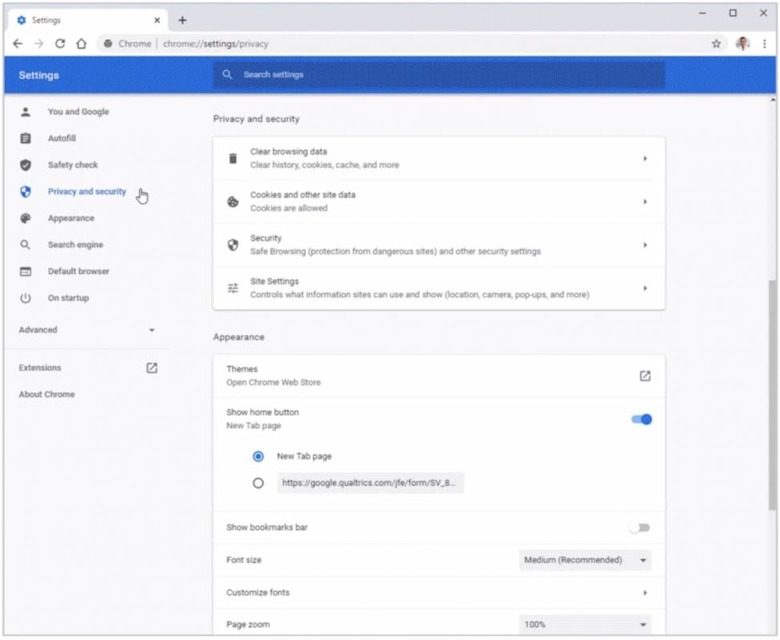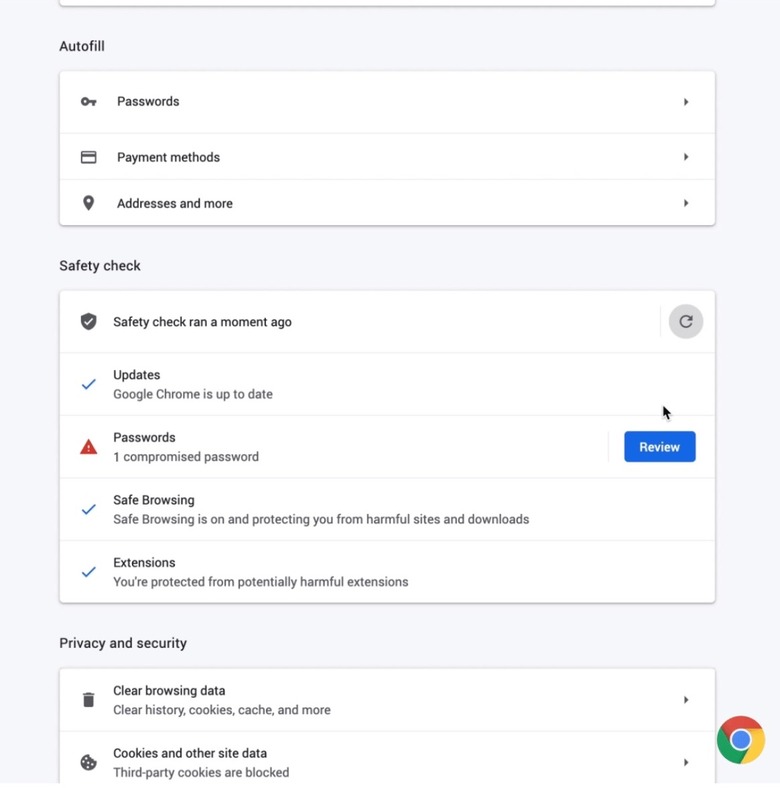Chrome Is Making Some Huge Privacy Changes
Google's Chrome browser is getting a huge privacy and security makeover, with a redesign of the settings with simplicity in mind. In addition to making controlling how Chrome handles privacy, Google is also switching up how extensions are managed, and how cookies are handled when you're in the Incognito private browsing mode.
A new "You and Google" section in the Chrome settings replaces "People": it holds all the sync controls. There, it'll be possible to change what data is shared with Google and saved to the Google Account, and what gets distributed to other devices you're signed into.
The "Clear browsing data" option has been made more prominent, moved out to the top of the Privacy & Security section. That, Google senior product manager AbdelKarim Mardini says, is because people are frequently deleting their history these days.

A new section for controlling whether websites can access things like location, camera, microphone, and notifications has been added. There's also a list of the most recent permissions granted. Enhanced Safe Browsing can be opted-into now, periodically checking whether the pages and downloads you're looking at are safe, and then warning if there's potential danger.
Similarly, Secure DNS will use DNS-over-HTTPS to encrypt the DNS lookup. That will help avoid eavesdropping onto which sites you're visiting, or redirecting you to phishing websites. That will be enabled by default, assuming your DNS service provider supports it; you'll also be able to change the DNS provider (or turn Secure DNS off) from the new section in the settings.
For Chrome extensions, there's a new way to manage them. The browser plug-ins will now be listed in a drop-down from the Chrome toolbar – though you'll still be able to pin extensions to the toolbar as well, for even easier access – complete with the option to adjust what each can access.
The private browsing Incognito mode, meanwhile, already won't save history, information entered on forms, or browser cookies. Now, Google is making it so that Chrome will also block third-party cookies by default in each Incognito session. A new control on the New Tab Page – which looks like an eye – will allow users to select certain sites for which third-party cookies are enabled. Google says we'll see this starting on Chrome on the desktop, and then in the Android version.
Google Chrome safety check
Google's other big change with the new Chrome is the addition of a safety check option. Freshly added to the browser's settings, it'll be a quick route to making sure the configuration is just as you'd want it to be when it comes to things like malicious extensions, compromised passwords, and more.
When the safety check is run, it'll automatically go through things like making sure you have the latest version of Chrome, and whether Safe Browsing is turned on. If any of the passwords Chrome has saved have been compromised, that will be flagged too. It'll also offer instructions on how to change them.
Finally, if any malicious extensions are installed, the Chrome safety check will identify them and prompt their removal.

